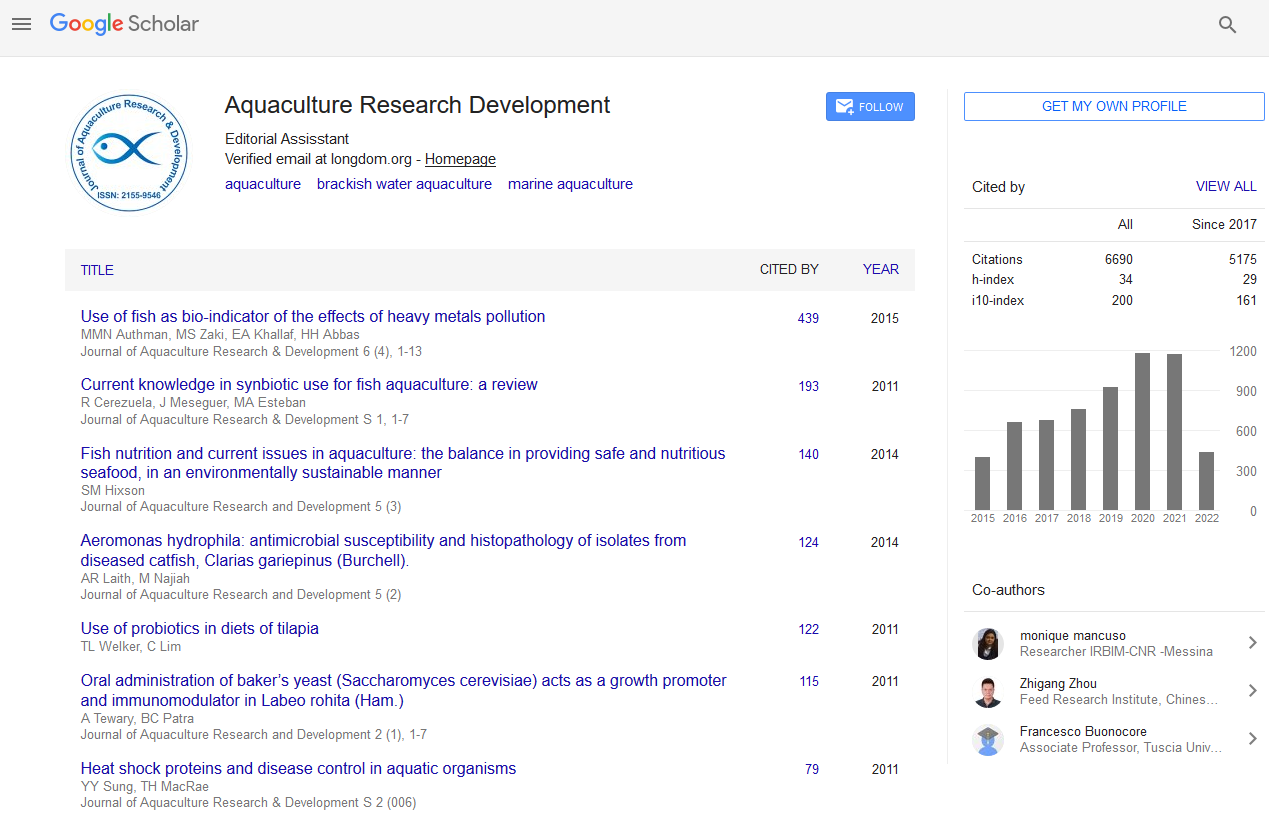PMC/PubMed Indexed Articles
Indexed In
- Online Access to Research in the Environment (OARE)
- Open J Gate
- Genamics JournalSeek
- JournalTOCs
- Scimago
- Ulrich's Periodicals Directory
- Access to Global Online Research in Agriculture (AGORA)
- Electronic Journals Library
- Centre for Agriculture and Biosciences International (CABI)
- RefSeek
- Directory of Research Journal Indexing (DRJI)
- Hamdard University
- EBSCO A-Z
- OCLC- WorldCat
- Scholarsteer
- SWB online catalog
- Virtual Library of Biology (vifabio)
- Publons
- MIAR
- University Grants Commission
- Euro Pub
- Google Scholar
Useful Links
Share This Page
Journal Flyer

Open Access Journals
- Agri and Aquaculture
- Biochemistry
- Bioinformatics & Systems Biology
- Business & Management
- Chemistry
- Clinical Sciences
- Engineering
- Food & Nutrition
- General Science
- Genetics & Molecular Biology
- Immunology & Microbiology
- Medical Sciences
- Neuroscience & Psychology
- Nursing & Health Care
- Pharmaceutical Sciences
Seaweed farming in NZ: An invasive species the first cab off the rank?
International Conference on Aquaculture & Fisheries
July 20-22, 2015 Brisbane, Australia
W Lindsey White
Posters-Accepted Abstracts: J Aquac Res Development
Abstract:
Undaria pinnatifida is an invasive seaweed species that was accidentally introduced to New Zealand in the 1980s by international shipping. It has been classified as an unwanted organism by Biosecurity NZ and has heavily infested mussel farms throughout New Zealand. Native to the cold-temperate coasts of Japan, Korea and China, U. pinnatifida is farmed extensively in Asia and generates in excess of US $2 billion per annum primarily through sales as a human food. In 2009 in recognition of the fact that this seaweed had already heavily infested some areas and that it has considerable financial value, Biosecurity NZ changed the regulations to allow harvest of U. pinnatifida from artificial structures and farming in some areas. Implications of this will be discussed.
Biography :
W Lindsey White is an Associate Professor completed his PhD at the University of Auckland in 2001. He was awarded a three-year Post-Doctoral Fellowship from the New Zealand Foundation for Research, Science and Technology and in 2004 took up a position as Senior Lecturer in the School of Applied Science at Auckland University of Technology (AUT). He is currently Head of the School of Inter Professional Health Studies at AUT. His research interests are in aquaculture and fisheries. The utilization of seaweeds both by humans and by marine herbivores has been a large focus of his work. In terms of human seaweed utilization, he is interested in seaweed farming both understanding and limiting the environmental impacts of seaweed farming. To examine plant-herbivore interactions he has employed a nutritional ecology perspective entailing a synthesis of information about both the algae and the herbivore. He is also interested in the uses of other marine organisms and recently has been focusing on NZ surf clams. In this regard he has brought together an interdisciplinary team of scientists to carry out research to support the growth of the fisheries of these animals including food science, bioactives research and biology and ecology.


